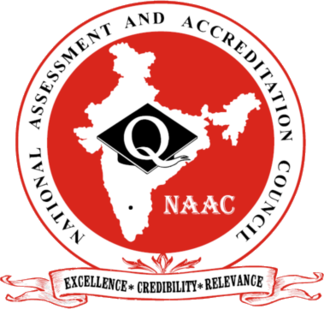
In today’s fast-moving digital economy, a B.Tech in Information Technology (B.Tech IT) is more than just a degree — it is a pathway into the core of data, connectivity, and innovation. From programming and databases to artificial intelligence, cloud computing, and cybersecurity, IT engineers play a central role in shaping industries. For students who want both technical expertise and practical career opportunities, B.Tech IT remains one of the most future-ready choices.
Eligibility for B.Tech IT
The eligibility for B.Tech in IT follows a standardized pattern across most Indian universities and IT institutes:
- Candidates must have completed Class 12 (10+2) with Physics and Mathematics as compulsory subjects, along with Chemistry, Computer Science, or Biology as electives.
- A minimum of 50–60% aggregate in PCM is typically required (varies by institution).
- Admissions are conducted through national or state entrance exams such as JEE Main, WBJEE, or university-specific counselling.
- Lateral entry options are available for diploma holders, enabling them to join directly in the second year.
Students should always check information technology course details and cut-offs from individual colleges before applying.
Curriculum Overview: What B.Tech IT Delivers
The B.Tech Information Technology curriculum blends computer science fundamentals with hands-on application. Students learn:
- Data structures and algorithms
- Operating systems
- Computer networks
- Database management systems
- Software engineering
- Emerging areas like AI/ML, cybersecurity, and cloud systems
Practical exposure is key. Institutions such as Guru Nanak Institute of Technology (GNIT) emphasize lab work, industry projects, and certification modules. Their AICTE-approved B.Tech IT program focuses on both core computing subjects and modern electives, preparing students for real-world challenges.
B.Tech IT Scope in India and Beyond
The scope of information technology is vast and continues to expand. Graduates find opportunities across:
- Software development companies and IT services
- Startups in fintech, edtech, and healthtech
- Government digital transformation initiatives
- Global consulting and enterprise software firms
High-demand areas include cloud architecture, cybersecurity, data science, DevOps, and site reliability engineering. With increasing digitalization, the IT scope in India and abroad is only set to rise.
Career Options After B.Tech IT
B.Tech IT job opportunities are diverse. Some popular roles include:
- Software developer / programmer
- Network engineer
- Database administrator
- QA/test automation engineer
- Cloud engineer
- Cybersecurity analyst
- Data engineer or ML engineer
Graduates can also explore bsc IT career options or pursue higher education such as M.Tech, MS, or specialized certifications. Many also prepare for NET after B.Tech to enter research or academia.
Salary Expectations
One of the common queries is about the B.Tech IT salary per month. While pay varies by region and company type, the trend is promising:
- Service-based firms offer structured growth with competitive entry packages.
- Product companies and AI/cloud roles often offer higher initial salaries.
- Entry-level salaries typically range from 3–6 LPA, with potential to rise sharply in specializations like cloud computing, AI, and cybersecurity.
Strong project portfolios, open-source contributions, and internships significantly boost placement outcomes.
Why Choose B.Tech in IT?
A B.Tech in Information Technology is not only about immediate placements but also about long-term career resilience. Skills in problem-solving, debugging, system design, and collaboration are transferable across industries.
- Graduates can pursue higher studies such as Bachelor of Engineering in Information Technology (BE IT), M.Tech, or international programs.
- The program also acts as a foundation for entrepreneurship in tech startups.
- Institutes like GNIT provide industry-linked training and placement support, ensuring students transition smoothly from classroom to career.
Practical Advice for Aspirants
To maximize the value of a B.Tech in IT, students should:
- Build a strong project portfolio (GitHub, hackathons).
- Gain exposure through internships early.
- Learn essential tools like cloud platforms, version control, and cybersecurity basics.
- Develop soft skills such as communication and teamwork — crucial for IT roles.
Conclusion
The B.Tech in IT scope remains broad and promising, with opportunities spanning software engineering, AI, cloud, and cybersecurity. With India’s increasing investment in digital infrastructure, IT graduates are in sustained demand.
Choosing an institute that balances academics with practical training is critical. At Guru Nanak Institute of Technology (GNIT), students gain access to modern labs, industry-aligned curriculum, and placement support, making it an excellent destination for aspiring IT professionals.




